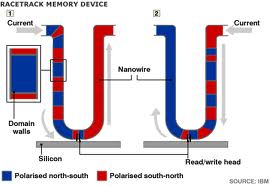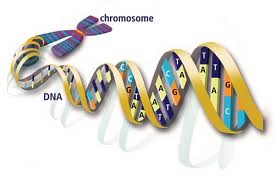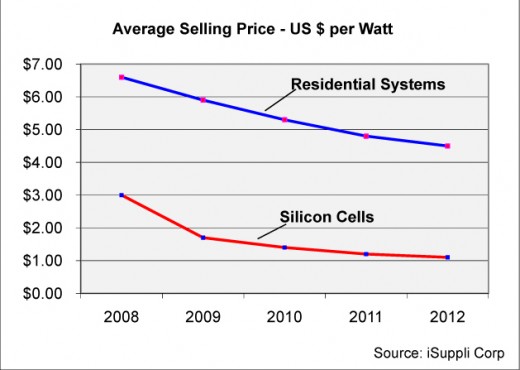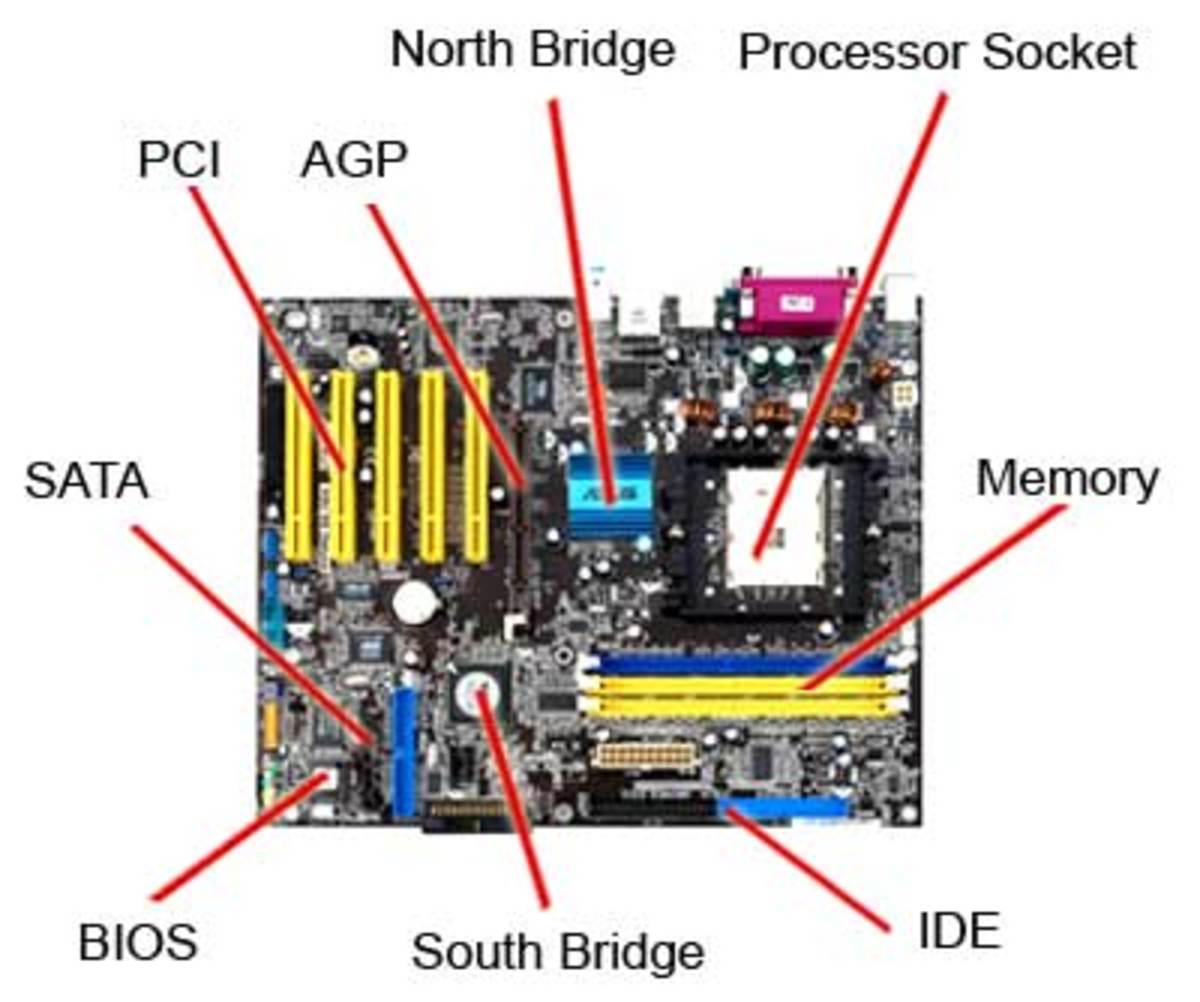The Future World - Science and Technology
Predicting the Future - Science and Technology
We may not know our own personal future or the future of governments, but there is one area where we can safely make a few predictions. That is in the area of science and technology. Technology is the easiest area since it always takes a few years for a new scientific breakthrough to become a new technology. Science is a bit harder, but in some areas research is paying off at a consistent rate.
I will be focusing on several different areas. The first and easiest will be computers and electronics. The next will be in health care. The last will be in energy.

The Power of Minituarization
The computer revolution has made rapid advances mainly due to the continuation of Moore's law. Moore's law basically states that the number of transistors on a chip will double about every 18 months.
This law seems to apply to a lot of other things in electronics. Hard drives, USB memory sticks, camera pixel density, optical fiber bit transfer rates, and more. There seems to be only one thing that may slow this progression down and that is the cost of implementing the new technology. I have noticed that the cost of a new factory always seems to go up in price with the new miniaturization techniques.
Many people have predicted the end of Moore's law, but we still seem to be way on track. Globalfoundries is planning to implement 20 nm process technology within the next few years. Other companies are starting to implement 3d scaffolding. Hard drive manufacturers are looking at racetrack memory. Although racetrack memory is probably a decade away still, the main problems seem to be with consistent fabrication. Even if the miniaturization technologies hit a wall, there will still be a lot of improvements due to reorganizing the motherboard to take advantage of a static technology.
All in all, we have at least ten more years of rapid improvements coming down the pipeline. Here are my predictions for the next 10-20 years:
- By 2020, we will see 16 terabyte flash drives hit the market for about a grand. Expect to see a terabyte flash drive for about $20-50. Smaller flashdrives will cost less than a nickel per gigabyte. We should see a petabyte flash drive well before 2030.
- By 2020, Solid State Drives will start to replace most, but not all of mechanical drives. While SSD drives will become more popular in many consumer goods, hard core users will still use mechanical drives for backup and storing large video libraries. We should see the first personal computer petabyte drive before 2025.
- By 2020, Computer technology will get ahead of the game technology curve. This means that the lowest priced netbook will probably play Diablo IV or the latest MMORPG when it arrives without any problems. Even most cell phones and tablet computers will be capable of playing the latest games if they are ported over.
- In 2020, the desktop computer will still be around. It will be very streamlined though.
- By 2030, Nvidia will eventually merge with Intel or go out of business.
- Starting in about 2020, theatres will start to go the way of drive-ins due to deluxe home entertainment centers continuing to drop in price. Movies will be released sooner and sooner on disk to fight the torrents. Eventually, a new market paradigm will take place, resulting in major producers using product placement in their movie script to replace lost revenues.
- Studios will start to sell collections (e.g. All of Buffy seasons) on flash drives. The flash drive will incorporate a player that can indirectly access the collection, while preventing general access from the computer to prevent copying. Flash drives are cheap enough now, that distribution could be done this way to reduce piracy (nothing can actually stop it) amongst general consumers. A collection of USBs would also take up much less room than a collection of DVDs or Blue-Rays.

The Genetic Revolution is just Beginning
The genetic revolution is just starting. Sequencing the human genome was only the first step. We also need to generate a list of all the proteins made and how they interact. The signals that our cells use to communicate must be decoded and turned into system charts.
The complexity of this job requires powerful computers and tons of research. Not the kind of research where new basic discoveries are being made, but the kind that is just basically collecting numbers and sorting them.
I feel that we are just starting to leave the dark ages of medicine. The 20th century was mainly about antibiotics and better hygiene. The 21st century will be about genetic medicine. I have a friend who would have died of leukemia a decade ago, but Gleevac will probably allow her to live a normal lifespan.
- Genetic Testing will allow each person to be aware of their inherited health risks.
- Blood Protein Analysis will allow diagnosis of early cancers and diseases.
-
Holistic Health Care will result in better health and resistance to cancer and disease.
- Longevity Drugs will extend our productive years and result in more affluence.
There is currently a huge schism between the medical/pharmaceutical industry and the holistic health care industry. I am not sure of the motives or hangups of Big Medicine, but there are certainly some major systemic errors in the industry. I suspect some of this is a tendency to support highly profitable endeavors, while ignoring effective, but low or zero profit areas of health care.
For example, getting a dietary intake of 1000 IU of vitamin D every day would reduce cancer risk by about 50% in the general population. Even though there had been a huge amount of data showing that low levels of vitamin D increased cancer rates, agencies like the Institute of Medicine continued to recommend only 200 IU of vitamin per day. Even as of 2010, they are only raising their recommendation to 600 IU per day, still significantly short of the suggested 1000 IU by most studies. Promoting Vitamin D just doesn't produce much revenue.
We need a new model that combines the strengths of big medicine with the wisdom of holistic health care. Maybe that will be the next big thing.

Energy and Materials Technology
With so many new improvements going on in the information industry, it is easy to forget that modern society relies on cheap energy. We will not only need new sources of cheap energy, but more efficient ways to use it.
- Jatropha is a succulent that produces a bio-diesel fuel. Cost seems to be about $50 per barrel, but even at $100 per barrel it would probably still be a viable replacement for drilling for oil. Genetic engineering would allow it to grow in deserts using salt water for irrigation. Already popular in Brazil, we will be seeing a lot more of this plant in the future.
- Solar Cell prices should keep falling, especially helping the home handyman to set up a cheap system. They are already economically feasible and common in many areas with high electricity prices (I see them all over Hawaii). I think the solar cell revolution will really start to take off once large panels cost less than a grand per kilowatt of output.
- New Batteries like the Lithium-Air battery could double or triple the range of electric vehicles by the end of this decade. New designs could result in much faster charges. I suspect that by the middle of this century, a day will arrive when electric cars suddenly make economic sense for everyone. Service stations will start appearing that work with super fast recharging batteries. The gasoline engine will quickly become obsolete after that. Diesel engines would still be needed for trucking and heavy industry though.
- Super strong glass using palladium and silver could make tougher and longer display devices. The main limit with this new material will be the high cost due to scarce materials.
- Super strong silks from research done with spider silk could revolutionize the clothing industry.

Governments and the Global Community
I am going to go out on a limb and make one major last prediction concerning our relationship to governments. In the past, most of us have lived in a dysfunctional relationship with government. There has been little that the common person could do to resist corruption and high taxes. Even democracy has been a general failure resulting in mob rule with little regard for basic principles. The main problem was a lack of knowledge. Checking out another area was rarely worth the cost.
The internet is changing this big time. People all over the world are letting others know about conditions in their current country or state. We have the knowledge to move from a bad area to a great area. It is just a matter of desire now. This is even happening in states within the U.S. as people move from places like California to Arizona or Texas to escape exorbitant taxes.
Some governments will become suicidal and just raise taxes even more or destroy their currency through inflation. This will result in the best and brightest leaving for those places that welcome people with low taxes and little regulation. I suspect that gold or gold based currency will greatly gain in importance in the future as people try to protect their wealth from governments gone wild.
The result will be a growth in freedom for those who seek it. And in the long run, I see this as a good thing. The rest of this century should be pretty exciting.








